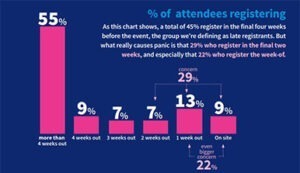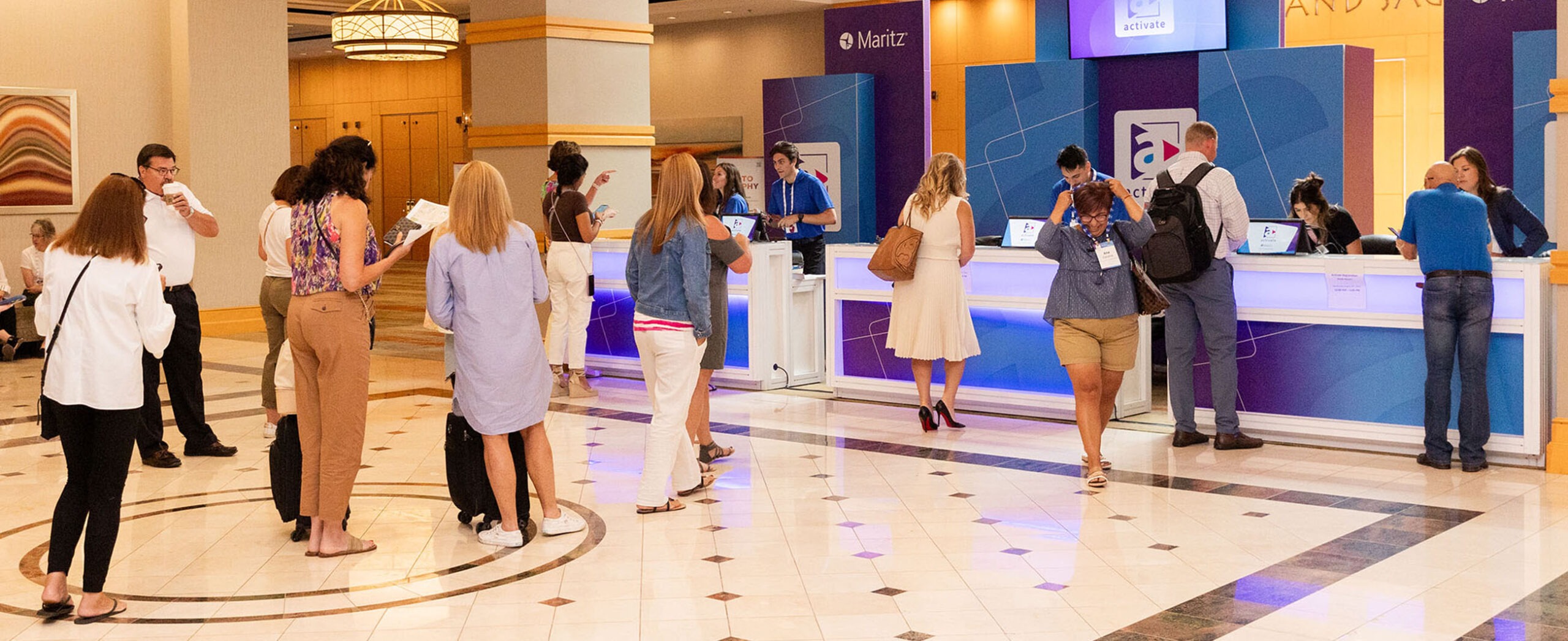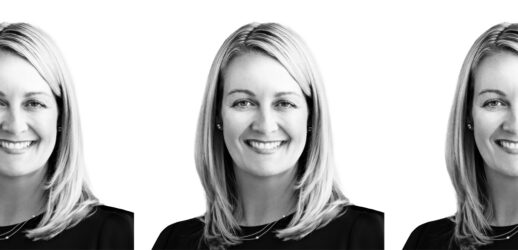Do you know the reasons your attendees show up at your events? And why do they wait so long to register, anyway? A new study, aptly named “Registration Insights Report: Optimizing revenue and attendance in the face of new attendee behavior” by Maritz revealed a changing model for getting people to fill out those increasingly long forms, sooner. Spoiler alert: It isn’t early bird discounts.

Emily Laufgraben, Maritz market insights manager, noticed a vacuum in behavioral data about what is driving people from diverse industries to register for events post-Covid. “There’s a lot of survey data measuring people’s attitudes, preferences, beliefs and satisfaction, but we saw an opportunity to dive into where the rubber meets the road, how attendees are making decisions and how to influence that,” she said. The results from 360,000 registrations across 30 trade shows showed that some of the anecdotal and self-reported conclusions were not correct.
The Late Registration Conundrum

A trend that causes angst for meeting organizers tasked with delivering rooming lists and BEOs a month out is a shift to delaying the commitment to attend. Almost half, 45% of conference-goers register within four weeks of the event date. That makes filling room blocks, estimating space and transportation needs and staffing appropriately difficult. Participants were already going in that direction pre-Covid, according to Maritz research, but the downtime accelerated the swing.
Read More: Are You Ready to Supercharge On-site Event Registration?
In fact, research showed that the percentage of people waiting until the week before an event to register averages 22%. And almost 10% are not even bothering to register and just showing up on site.
“That gives planners heartburn,” Laufgraben empathized. “There seems to be this real disconnect between the set of rules that we’ve operated under as an industry and how attendees are actually behaving.”
Peer Influencers
Laufgraben reasoned that after getting out of the habit of attending regular conferences, people are carefully evaluating whether any trip will be worth their time investment. She also found that, particularly for younger Gen-Z attendees, the biggest determiner about whether they will be attending is if a colleague, peer or thought leader is going. “In-person networking is seen as the most important factor so first-timers, in particular, want to make sure they know someone.”
Geography also plays a role, according to the data. Local attendees in driving distance, who don’t have to book flights in advance also tend to wait until the last minute to make a decision. “The result is that cities with large driving markets end up having higher-than-average percentages of people who register closer to the date of the event,” Laufgraben said.
In addition to age and geography, industry also plays a role. The report concluded that professions seen as being made up of rule-followers (teachers, doctors and legal or financial professionals) are less likely to register late. For medical conferences, only 29% register within that critical 30-day window. Food and restaurant shows reported 54% of attendees waiting until less than a month out.
Financial Implications
The biggest takeaway from the study, according to Laufgraben, is that discounts for registering months in advance not only don’t work, but they are counter-productive. “The model is outdated,” she concluded.
People who register as soon as the website goes live tend to be event veterans who would pay to go no matter what. They don’t need a discount to motivate them.
One of the more surprising findings is that even when the discounts are factored out, they tend to not spend as much as attendees who buy their ticket later. “Late attendees aren’t bad attendees,” Laufgraben said. In fact, they tend to be more motivated to spend on ancillary offerings such as add-on sessions, on-demand content and social events. They spend about $92 more compared to early birds. “Once they make that decision and pull that trigger, they’re motivated to maximize their investment and that is reflected in their spending patterns,” she said.
The Collaborative Solution
While the industry is figuring out a new model that meets the needs of networking-sensitive attendees and hotels that need to plan in advance to serve them, Laufgraben suggests being more collaborative with all stakeholders. “We tend to want to hold our data close to the vest and not fully share with all suppliers. Our advice is to consider being more transparent about registration data,” she said. “The more of a line of sight you can give to hotels, the more you can have valuable conversations.”




